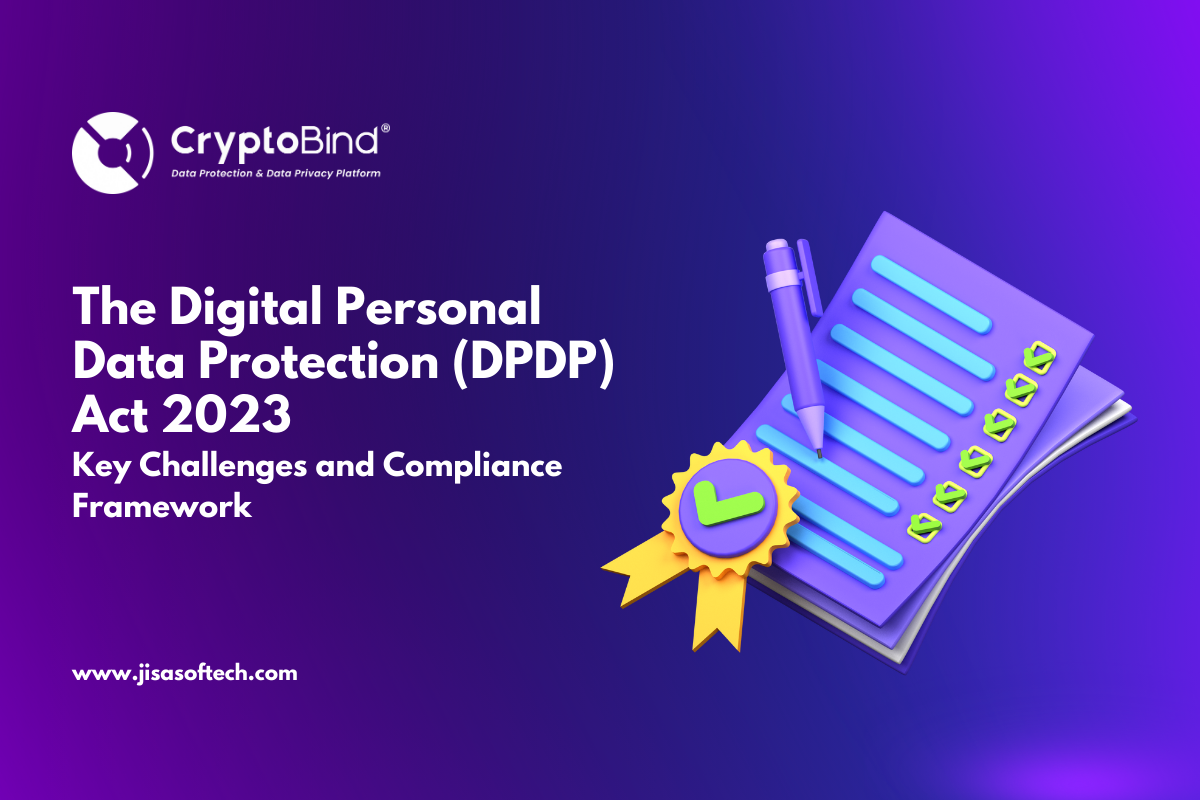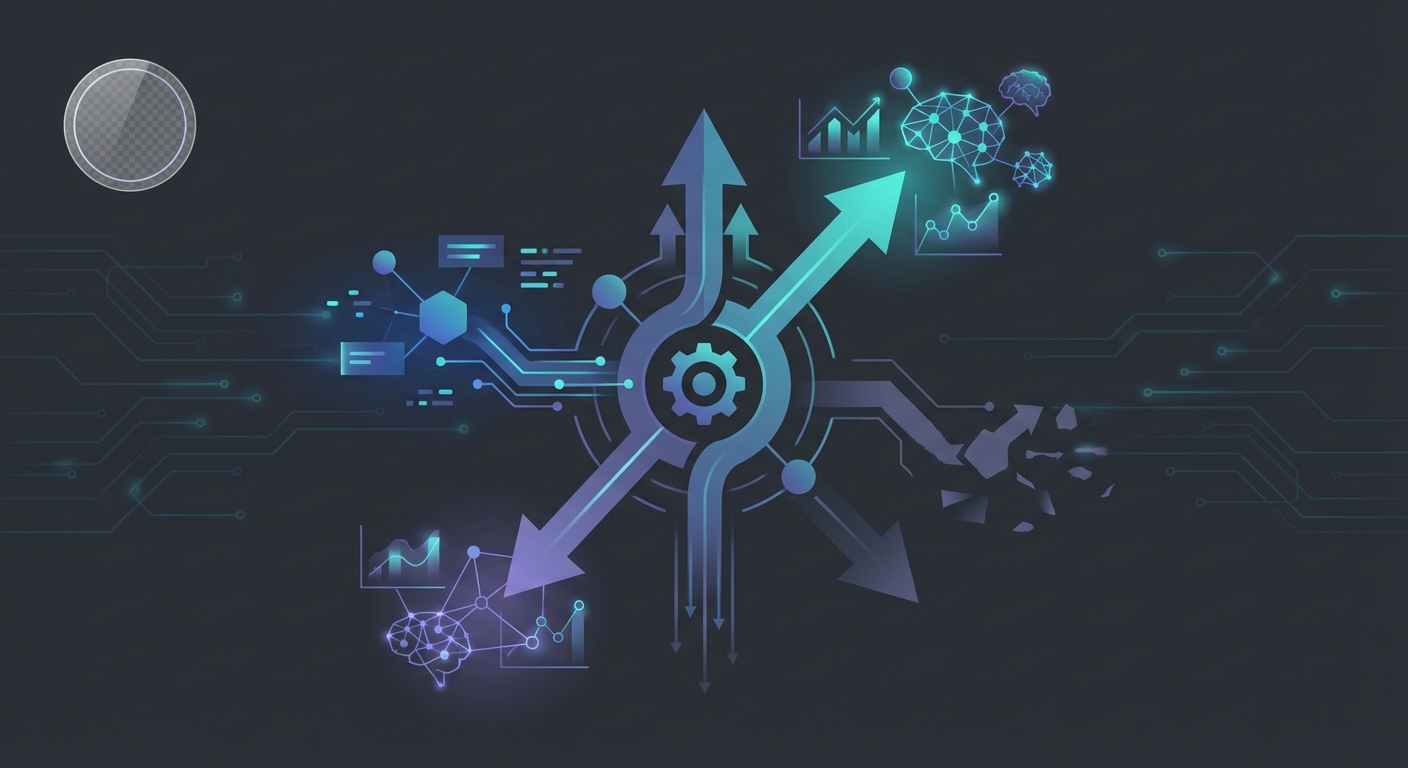Impact of India's Digital Personal Data Protection Act 2023

Image courtesy of Jisa Softech
Overview of the DPDP Act
The Digital Personal Data Protection Act 2023 marks a significant change in India’s data privacy landscape. It establishes a comprehensive framework for protecting personal data, emphasizing user rights and corporate accountability. Businesses must now comply with stringent requirements regarding data processing and management.
Key Challenges Under the DPDP Act, 2023
1. Compliance Complexity and Increased Regulatory Burden
The DPDP Act mandates businesses to:
- Obtain explicit consent from individuals before processing personal data.
- Appoint Data Protection Officers (DPOs) for compliance oversight.
- Maintain detailed audit logs of data processing activities.
- Implement grievance redressal mechanisms for individuals.
These requirements can be resource-intensive and costly, especially for startups and small businesses. Companies must adapt their existing data governance policies to meet these demands.
2. Extraterritorial Scope and Global Data Processing Challenges
The Digital Personal Data Protection Bill 2023 applies to any entity processing the personal data of Indian residents, regardless of location. This raises challenges for global organizations, including:
- Understanding specific compliance requirements relevant to India.
- Navigating restrictions on cross-border data transfers.
- Aligning with international laws like the GDPR while maintaining DPDP compliance.
3. Cross-Border Data Transfer Ambiguities
The DPDP Act does not enforce data localization but requires that personal data is only transferred to countries approved by the Indian government. Organizations engaging in sectors such as:
- Cloud computing
- Financial services
- E-commerce
- AI analytics
must stay updated on regulatory changes to ensure compliance.
4. Managing User Consent and Data Principal Rights
The DPDP Act emphasizes consent-based data processing, necessitating that organizations:
- Secure clear, informed consent prior to data processing.
- Allow individuals to access, correct, and delete their data.
- Enable individuals to withdraw consent at any time.
Implementing these consent workflows can be operationally intensive.
5. Lack of Standardized Data Security Measures
Unlike the GDPR, the DPDP Act does not specify technical security standards. Businesses must determine their own security measures, which may include:
- Data encryption and tokenization for secure data handling.
- Access control mechanisms to prevent unauthorized access.
- Regular cybersecurity audits to identify vulnerabilities.
6. Sector-Specific Compliance Challenges
- Fintech and Banking: Financial institutions must ensure compliance as data fiduciaries, navigating complex data-sharing arrangements.
- E-commerce: Platforms must clarify whether they or the seller act as data fiduciaries, managing vast amounts of consumer data.
- Service-Based Platforms: Companies like Uber and Zomato must implement data minimization to protect user privacy.
7. Penalties for Non-Compliance
The DPDP Act imposes strict penalties, including:
- Fines up to ₹250 crore for data breaches.
- Legal consequences for failing to meet consent obligations and security measures.
Organizations must adopt proactive compliance strategies to avoid these penalties.
Compliance Framework for DPDP Act, 2023
To ensure compliance, businesses should adopt a structured framework, including:
1. Conduct a Data Privacy Assessment
Map data collection points and identify roles (data fiduciary or data processor).
2. Establish a Robust Consent Management System
Implement granular consent mechanisms and provide clear privacy notices.
3. Strengthen Data Protection Measures
Adopt encryption, multi-factor authentication, and regular security audits.
4. Appoint a Data Protection Officer (DPO)
Designate a DPO to oversee compliance and manage user grievances.
5. Establish Data Governance and Compliance Policies
Create internal guidelines for data retention, processing, and disposal.
6. Ensure Cross-Border Data Transfer Compliance
Monitor the government’s list of restricted countries for data transfers.
7. Implement Data Subject Rights Mechanisms
Facilitate access, correction, and deletion of personal data for users.
8. Prepare for Regulatory Audits and Compliance Reviews
Maintain audit trails of data processing activities and develop a data breach response plan.
Legal Challenges in the Era of DPDP Act
As organizations leverage AI, they face legal challenges under the DPDP Act. Key concerns include:
Lack of Transparency
Many AI systems are complex and opaque, making it difficult to provide clear explanations of data processing.
Data Minimization Requirements
AI typically requires large datasets, conflicting with the DPDP’s data minimization principles.
Consent and Purpose Limitation
Obtaining explicit consent for secondary data usage remains a challenge.
Data Security and Confidentiality
AI requires robust data security measures, which can be complex in distributed processing environments.
Rights of Data Principals
Implementing user rights, such as access and erasure, presents technical complexities for continuous learning AI models.
Continuous Compliance and Adaptation
Organizations must stay updated on evolving regulations and adapt their AI systems accordingly.
Business Impact and Adjustments
Businesses must urgently set up comprehensive data systems to comply with the DPDP Act. This involves:
- Revisiting data practices and reviewing workflows.
- Ensuring compliance across various functions, including marketing.
- Updating terms of service to align with the DPDP Act requirements.

Image courtesy of Live Mint
Companies must prepare for rigorous compliance, especially regarding data retention and consent management. The DPDP Act necessitates significant operational changes, making it crucial for organizations to align with its requirements efficiently.
Explore our services at undefined or contact us for assistance in navigating the complexities of data protection compliance.





